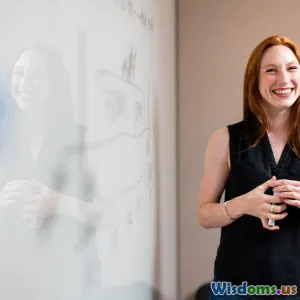
Comparing Growth Versus Fixed Mindset in Career Advancement
8 min read Explore how growth and fixed mindsets impact career success and learn strategies to foster a mindset for advancement. (0 Reviews)
Comparing Growth Versus Fixed Mindset in Career Advancement
Introduction: The Mindset That Shapes Your Career
Imagine two professionals, Emma and Lucas, both equally qualified and starting at similar positions within their companies. Over the years, Emma steadily climbs the ladder, embracing challenges and learning from setbacks. Meanwhile, Lucas stagnates, avoids risks, and views his abilities as fixed traits. What sets their career trajectories apart? The answer lies in their mindsets—specifically, whether they have a growth or fixed mindset.
Coined by psychologist Carol S. Dweck, the concepts of "growth" and "fixed" mindsets explain how our beliefs about abilities influence motivation, resilience, and ultimately, success. In the context of career advancement, these mindsets can be game changers. This article delves deep into the nature of these mindsets, their distinct influence on professional growth, and practical steps you can take to cultivate a growth mindset for your career.
Understanding Fixed and Growth Mindsets
Fixed Mindset: The Career Ceiling
A fixed mindset assumes that intelligence, skills, and talents are innate and static. People with this mentality often shy away from challenges, fearing failure or being judged incompetent. In career settings, this can manifest as:
- Avoiding tasks perceived as difficult to dodge failure.
- Reluctance to receive or seek feedback.
- Viewing effort as fruitless if natural talent is lacking.
- Getting defensive when faced with criticism.
For example, an employee might resist taking on a leadership role believing they lack natural charisma or organizational ability. They may miss key opportunities to develop and demonstrate their value.
Growth Mindset: The Catalyst for Professional Development
In contrast, a growth mindset posits that abilities can be developed through dedication, effort, and learning. This belief fosters curiosity, persistence, and open-mindedness—qualities that drive career progression.
Characteristics include:
- Welcoming challenges as chances to improve.
- Viewing failures as valuable learning experiences.
- Actively seeking feedback.
- Believing sustained effort leads to mastery.
Consider Satya Nadella, CEO of Microsoft, who often credits a growth mindset for transforming both himself and Microsoft by championing a culture of continuous learning and innovation.
Real-World Impact: Mindsets and Career Advancement
Empirical Evidence
Numerous studies tie growth mindsets to superior professional outcomes. A 2018 Harvard Business Review analysis found employees with growth mindsets exhibited higher levels of engagement, adaptability, and influence in their organizations.
In contrast, those with fixed mindsets faced increased burnout and often plateaued early in their careers.
Impact on Learning and Skill Acquisition
Career advancement often demands acquiring new skills amid evolving industries. Growth-minded professionals:
- Embrace upskilling and reskilling initiatives.
- Leverage mistakes as learning points.
- Adapt to technological changes more fluidly.
For instance, professions such as digital marketing require practitioners to continuously learn new tools and trends. A fixed mindset toward learning may cause someone to be overwhelmed or resistant, whereas a growth mindset enables proactive evolution.
Networking and Relationship Building
A growth mindset encourages open conversations and collaborative problem solving, often expanding professional networks. Fixed mindset individuals may avoid such interactions fearing vulnerability or judgment, limiting their career opportunities.
Cultivating a Growth Mindset for Your Career
Recognize and Reframe Limiting Beliefs
The first step is awareness. Pay attention to when you might label your abilities as "fixed" or reject challenges. Reframe these thoughts. Instead of "I'm not good at public speaking," consider, "I can improve with practice."
Seek Constructive Feedback Actively
Feedback is invaluable for growth. View criticism not as personal attacks but as guidance to elevate your skills.
Set Learning Goals, Not Just Performance Goals
Performance goals (e.g., "Close X number of deals") are important but coupling them with learning goals (e.g., "Learn new sales software") nurtures a growth mindset fostering continuous improvement.
Embrace Challenges and Persist Through Setbacks
Understand that setbacks are part of the growth curve. Reflect on failures to extract insights rather than see them as proof of incompetence.
Develop a Habit of Reflection and Curiosity
Regularly reflect on experiences and ask yourself questions like "What did I learn from this?" or "How can I approach this differently?" Curiosity accelerates growth mindset development.
Learn From Role Models and Mentors
Identify leaders or colleagues who embody a growth mindset. Their stories and behaviors can inspire and offer practical guidance.
The Organizational Role: Creating Mindset Ecosystems
Businesses can either stifle or nurture growth mindsets. Google’s famous "Project Oxygen" emphasized manager behaviors that support employee development, leading to better performance and satisfaction.
Implementing training programs that focus on mindset change, rewarding efforts (not just outcomes), and establishing psychologically safe environments can catalyze collective career advancement.
Conclusion: Your Mindset as a Career Asset
The growth vs fixed mindset dichotomy offers profound insights into career advancement. While a fixed mindset traps professionals within perceived ceilings of ability, a growth mindset unlocks potential, resilience, and ongoing development.
By consciously adopting growth-oriented beliefs and practices, you empower yourself to meet challenges, leverage failures, and continuously expand your professional horizons. This is not just a psychological theory but a pragmatic strategy for career longevity and fulfillment.
As Carol Dweck said, "Becoming is better than being." In the journey of your career, embracing becoming with a growth mindset may be the most strategic step you take.
References:
- Dweck, C. S. (2006). Mindset: The New Psychology of Success. Random House.
- Harvard Business Review. (2018). Building a Growth Mindset in the Workplace. Retrieved from hbr.org
- Nadella, S. (2017). Hit Refresh: The Quest to Rediscover Microsoft’s Soul and Imagine a Better Future for Everyone. Harper Business.
Start your growth mindset journey today and watch your career flourish!
Rate the Post
User Reviews
Popular Posts





















